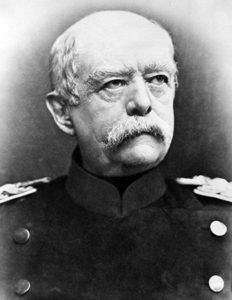Law 3: Conceal Your Intentions

Greene recalls a story that took place in France in the seventeenth century, that was a violation of this law. There was a Marquee who wanted to seduce a Countess, but being young and inexperienced, he had no idea what to do. A famous Courtesan at the time, Ninon de Lenclos, listened to the struggles of the young man, and offered her guidance.
At first, everything went well. The Maquee listened to Ninon’s advice – which included sending the Countess mixed signals for several weeks, leading her along an unpredictable journey. At times, he would make her jealous by appearing with other beautiful women by his side, and at other times, he would flatter her. And in some moments, he would feign indifference.
This captivated the Countess’ attention. Ninon’s advice was working perfectly, for she – at the age of 62 – was proficient in the art of love and seduction, and understood how a woman’s mind worked. The Countess experienced feelings of jealousy, confusion, and anger, but she was excited. It was better than the boredom of security.
But one day, when the Marquee found himself alone with the Countess, he blew his cover. Instead of keeping his cool, he decided to be himself and express his love for her. This made the Countess feel awkward, and taken off guard, she withdrew from the conversation. The spell was broken and their relationship was over. The Marquee failed to conceal his intentions, because he failed to understand human psychology. He resorted to instinct, rather than rely on careful maneuvering and disguised tactics as instructed by Ninon.
Do not be held a cheat, even though it is impossible to live today without being one. Let your greatest cunning lie in covering up what looks like cunning.
– Baltasar Gracián, 1601-1658.
Otto Von Bismark’s story is an a testament to the power of this law. In 1850, Otto Von Bismark, one of the most clever statesmen in history, made a surprising speech. At the time, there was a potential war between Bismark’s Prussia and Austria, but Bismark’s speech was an overwhelming call for peace.
“Woe unto the statesman,” he said, “who makes war without a reason that will still be valid when the war is over! After the war, you will all look differently at these questions. Will you then have the courage to turn to the peasant contemplating the ashes of his farm, to the man who has been crippled, to the father who has lost his children?”
– Otto Von Bismark
Bismark even praised the Austrians in that speech, and this was even more surprising. The deputies who wanted war were confused and some of them changed their votes. Meanwhile, the king and his ministers won the vote, and war was avoided.
The grateful king soon mean Bismark a cabinet minister, and eventually, Bismark became Prussia’s premier. He would later lead Prussia against Austria and unite Germany in the process. This was not a peaceful man. He is the same person who famously remarked, “The great questions of the time will be decided, not by speeches and resolutions, but by iron and blood.”
But he had two reasons to make the speech that called for peace at the time that he did. One, Prussia was not strong enough for war. Two, he wanted to win the king’s favor.
Greene’s point here is that if he had stated his intentions to the king from the start instead of being patient and misleading, he would not have risen to power and gotten what he eventually wanted.
Most people blurt out exactly what they feel, but they mistakenly think this is a virtue. It is, in fact, anything but so. Being an open book is easy. Merely expressing whatever thoughts come to your mind is effortless behavior. It takes effort and willpower to withhold your plans about the future, and what you really think.
Further, people think that by being open, they are being virtuous. They think that people will appreciate their honesty, but what often happens is the opposite. People end up becoming offended. The truth is often ugly and unpalatable, and being generous with what you decide to disclose will make it hard for others to respect you. The familiar and the predictable will never be feared, and for that reason, they will never be powerful.
Read The 48 Laws of Power
If you’re interested in exploring the darker parts of human psychology that most people ignore, consider reading this short book The Dichotomy of the Self.